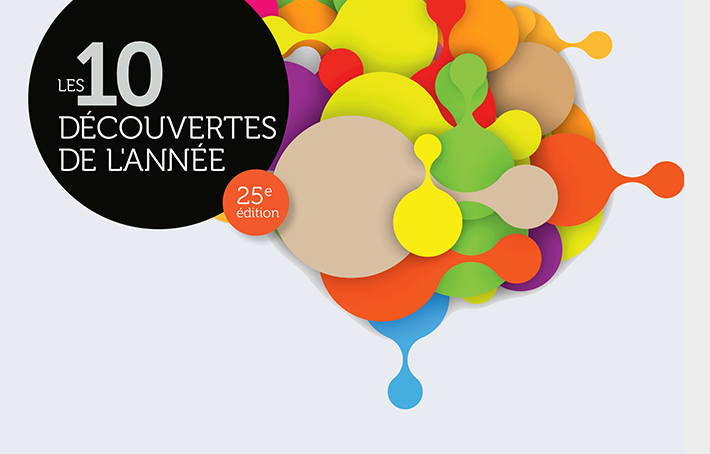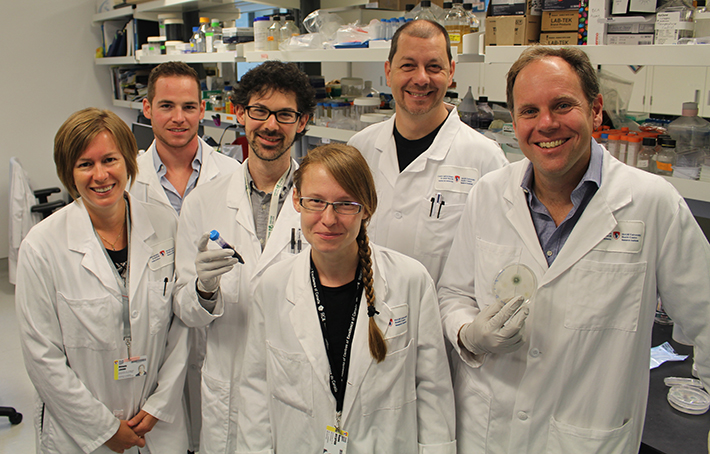MUHC researchers contribute to two of 10 ‘Discoveries of the year’ selected by Québec Science for 2017

Québec Science magazine has selected its 10 Discoveries of the Year for 2017, including two researchers affiliated with the McGill University Health Centre and its Research Institute (RI-MUHC).
Congratulations to our researchers and their teams for their continuous work and innovation in the field of biomedical research!
Visit quebecscience.qc.ca and vote now for YOUR top scientific discovery of 2017
Here are the selected discoveries involving scientists affiliated with the MUHC and RI-MUHC for 2017:
Biofilms -- the eradication has begun – Don Sheppard (RI-MUHC, MUHC and McGill), Brendan Snarr (RI-MUHC and McGill)

Have you ever heard of biofilms? They are slimy, glue-like membranes that are produced by microbes, like bacteria and fungi, and they colonize surfaces. They can grow on animal and plant tissues, and even inside the human body on medical devices such as catheters, heart valves, or artificial hips. Biofilms protect microbes from the body’s immune system and increase their resistance to antibiotics. They represent one of the biggest threats to patients in hospital settings. But there is good news – a research team led by the Research Institute of the McGill University Health Centre (RI-MUHC) and The Hospital for Sick Children (SickKids) has developed a novel enzyme technology that prevents the formation of biofilms and breaks them down.
http://www.quebecscience.qc.ca/10-decouvertes-2017/10-Percer-les-defenses-microbiennes
An infallible hand-held probe to aid cancer surgery — Kevin Petrecca (The Neuro, affiliated with the MUHC and McGill) Frédéric Leblond (Polytechnique Montréal)

Patients with common widespread forms of cancer will enjoy longer life expectancy and reduced risk of recurrence thanks to a multimodal optical spectroscopy probe developed by Canadian researchers. In 2015, scientists at Polytechnique Montréal, the University of Montreal Hospital Research Center (CRCHUM), the Montreal Neurological Institute and Hospital (The Neuro), McGill University, and the McGill University Health Centre (MUHC) developed a hand-held Raman spectroscopy probe allowing surgeons to accurately detect virtually all brain cancer cells in real time during surgery. The research team has now perfected the invention and designed a new device with improved accuracy, sensitivity and specificity, capable of detecting not only brain cancer cells but colon, lung and skin cancer cells as well. In intraoperative testing, the multimodal optical spectroscopy probe detected cancer cells infallibly, with nearly 100 per cent sensitivity—in other words, when pointed at a cancerous region, the probe is never wrong.
http://www.quebecscience.qc.ca/10-decouvertes-2017/2-Sonde-anti-cancer